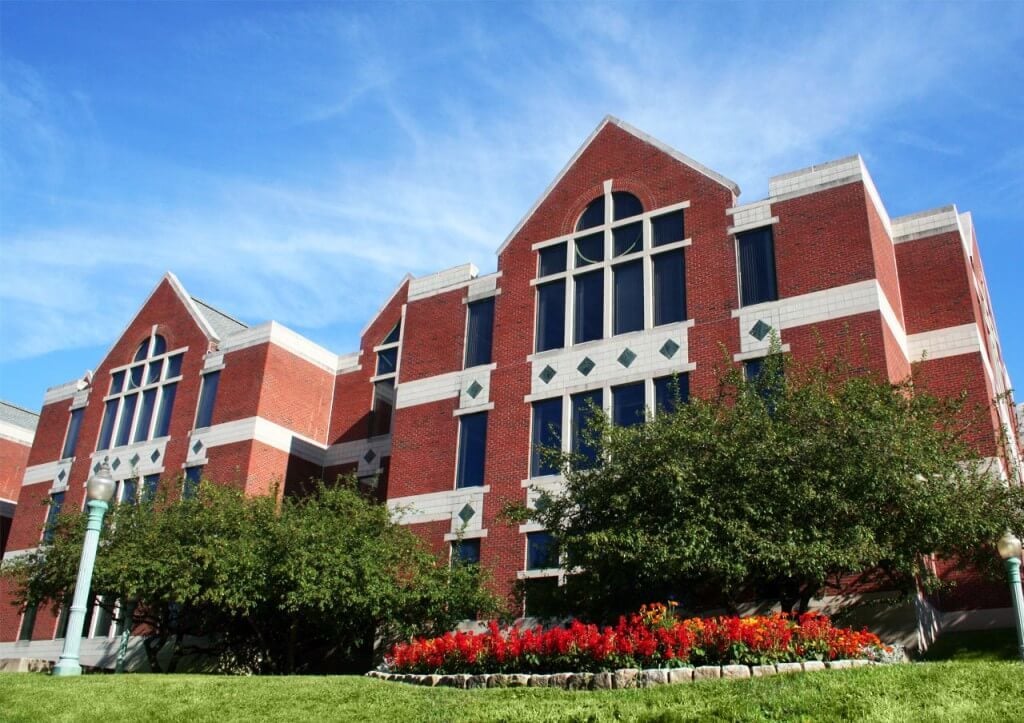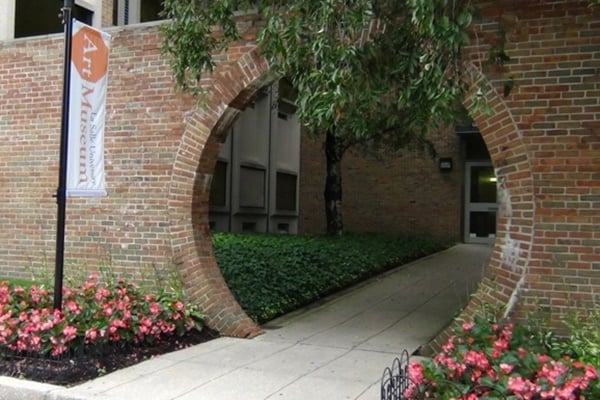Art World
Outrage Mounts as La Salle University Forges Ahead With Plan to Sell Works From Museum’s Collection
Museum watchdogs and others are crying foul, but the university is undeterred.

Museum watchdogs and others are crying foul, but the university is undeterred.

Eileen Kinsella

It didn’t take long for the recent news that Philadelphia’s La Salle University plans to auction off nearly 50 artworks from its museum’s collection for the intense backlash to begin.
“I am bewildered, disgusted, heartbroken,” alumna Emily Levy wrote in an open letter on Twitter.
“I feel as though the place has been raped,” Caroline Wistar, a former longtime curator at the museum, told The Philadelphia Inquirer. Reached today, Wistar told artnet News that her friends and colleagues are “all just devastated.”
“We’re all in the dark and shocked, just absolutely shocked,” she said, noting that she helped build the collection during her 30-year tenure. “We don’t understand the reason for it.”
In the museum world, few moves are more controversial than the decision to sell art—particularly when the proceeds are used to do anything other than upgrade the collection.
Often, institutions that choose this path, such as the Berkshire Museum, claim that the decision to sell is motivated by a desperate financial need. La Salle insists its case is different—although numbers may suggest otherwise.
For its part, the university says it does not need the money to survive—but it can more effectively use the money generated by the sale than it can the art. The proceeds will be used to expand educational programs, according to the university.
“The artworks are not going to plug a deficit [and] they’re not going for operations,” university spokesperson Jaine Lucas told artnet News. “They are being invested in the future of our university to help grow and to be financially sustainable. More importantly, we are really looking to enhance student experience and student outcome.”
It is unclear how much of this rationale is spin on the part of the university. Susan Snyder and Stephen Salisbury of The Philadelphia Inquirer report that the school has been working to stem a major deficit. In 2015, the school had a $12 million shortfall, its enrollment dropped 18 percent, and 23 staff members were laid off.
Lucas said the board of trustees’s decision to deaccession the works was the result of months of careful consideration during which it examined all of the university’s assets and “made a decision that select artworks from our art museum could be reallocated for funding the university’s new strategic five-year plan.”
The 46 artworks, which were selected in consultation with Christie’s from more than 5,000 works in the museum’s collection, are scheduled to be sold by the auction house between March and June in New York, London, and online. All told, the works are estimated to generate between $4.8 million and $7.3 million.
The five priciest works—Elisabeth Frink’s Walking Madonna; Jean‐Auguste‐Dominique Ingres’s Virgil Reading the Aeneid Before Augustus; Dorothea Tanning’s Temptation of Saint Anthony; Georges Rouault’s Le Dernier Romantique; and Albert Gleizes’s L’homme dans le Ville—are expected to realize the lion’s share of the total, between $2.2 million and $3.45 million.

The La Salle University Art Museum. Image via OpenPhilly.com
Other artists whose works are destined for the auction block include Thomas Eakins, Alex Katz, and Henri Matisse, according a list provided to artnet News.
La Salle’s decision violates guidelines recognized by professional organizations such as the American Alliance of Museums (AAM) and the Association of Art Museum Directors (AAMD), which prohibit institutions from selling artworks in cases where the proceeds will be used for anything other than acquiring more art.
These rules are more often tested by university art museums, which are governed by the board of the parent institution—one that sometimes has different priorities than museum leadership.
While we “really appreciate and respect the perspective of the art community… we are first and foremost a university, not an art museum,” Lucas noted. Although La Salle is an unaccredited member of AAM, she pointed out that the museum is not a member of the AAMD. She declined to comment when asked additional questions today.
Member or not, La Salle has inspired a sharp rebuke from leading professional organizations. This afternoon, AAM and AAMD released a joint statement about the plan:
The American Alliance of Museums (AAM), an organization representing the entire scope of the museum community, and the Association of Art Museum Directors (AAMD), an organization representing 243 directors of North America’s leading art museums, are strongly opposed to plans announced by La Salle University to deaccession 46 works of art from its collection to fund non-museum investments.
College and university art museums have a long and rich history of collecting, curating, and educating in a financially and ethically responsible manner on par with the world’s most prestigious institutions. A different governance structure does not exempt a university museum from acting ethically, nor permit them to ignore issues of public trust and use collections as disposable financial assets. This is a fundamental ethical principle of the museum field, one which all institutions are obligated to respect: in no event shall funds from deaccessioned works be used for anything other than support for a museum’s collections.
We are in conversation with La Salle University about their plans, and we remain hopeful that the University leadership will reconsider their decision. We stand ready to assist, in any way we are able, to find other solutions to the institution’s needs without resorting to the selling of works that can never be recovered, to the great detriment of current and future students and community members.
The Association of Art Museum Curators also released a statement online, saying it “stands against La Salle University’s plan,” which goes against fundamental best practices of museums.”